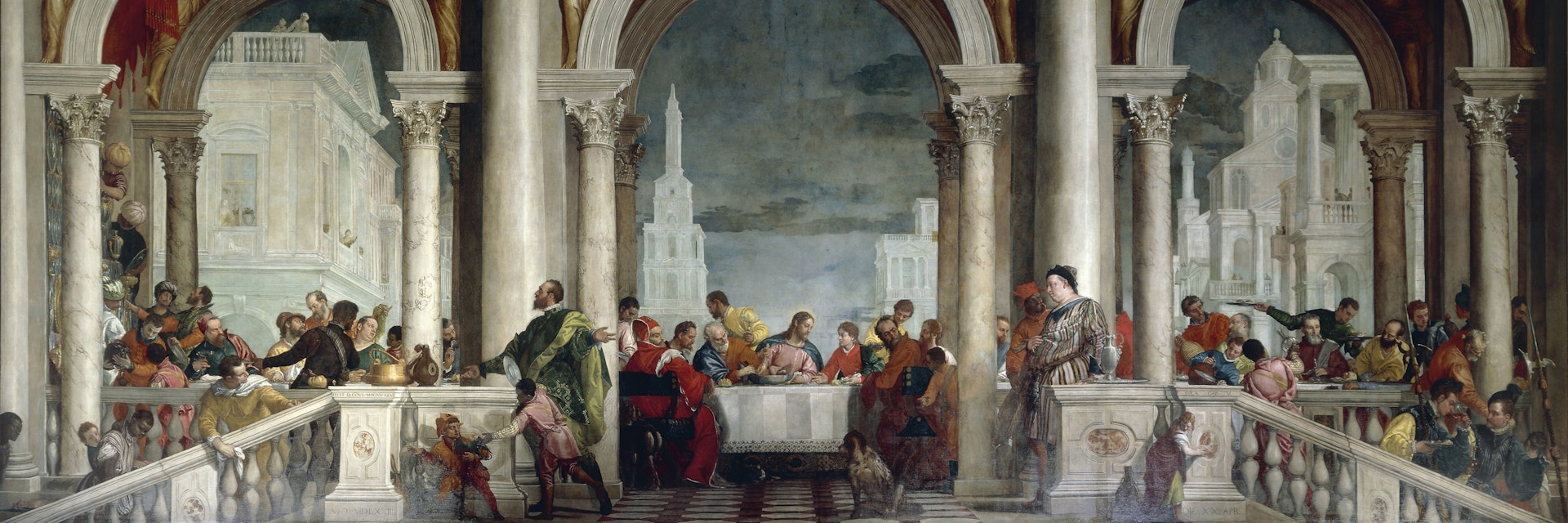Venice's historic gallery traces the development of Venetian art from the 14th to 19th centuries, with works by all of the city's artistic superstars. The complex housing the collection maintained its serene composure for centuries until Napoleon installed his haul of art trophies here in 1807 тАУ looted from various religious institutions around town. Since then thereтАЩs been nonstop visual drama on its walls. Note that the gallery is in the midst of a major refurbishment; some rooms may be closed.
The Accademia inhabits three conjoined buildings. The Scuola della Carit├а (founded 1260) was the oldest of Venice's six scuole grandi (religious confraternities); the current building dates to 1343. Bartolomeo Bon completed the spare, Gothic-edged facade of the Chiesa di Santa Maria della Carit├а in 1448. A century later, Palladio took a classical approach to the Convento dei Canonici Lateranensi. From 1949 to 1954, Carlo Scarpa chose a minimalist approach to restorations. The bulk of the collection's treasures are on the 1st floor, and this is the best place to start your visit. The ground floor houses major exhibitions, sculpture and a less showstopping collection of paintings from 1600 to 1880.
Take the stairs up from the grand entry hall and prepare to be overwhelmed by the sensory overload of Room 1, where a swarm of angels flutter their golden wings from the carved ceiling, gazing down upon a swirling polychrome marble floor. Competing valiantly for your attention are a collection of vivid 14th- and 15th-century religious works that show Venice's precocious flair for colour and drama.
Room 20 is full of large canvases taken from the Scuola Grande di San Giovanni Evangelista. Gentile Bellini's Procession in Piazza San Marco offers an intriguing view of Venice's most famous square before its 16th-century makeover, while the former wooden version of the city's most famous bridge appears in Vittore Carpaccio's Miracle of the Reliquary of the Cross at Rialto Bridge.
The former church (Room 23) is a serene showstopper fronted by a Bellini altarpiece. Sharing the space is GiorgioneтАЩs highly charged The Storm. The rear of the church displays massive canvases looted from the Scuola Grande di San Marco.
The Sala dellтАЩAlbergo (Room 24) has been left untouched from when it was the Scuola della Carit├а's boardroom. Meetings would not have been boring here, under a lavishly carved ceiling and facing Antonio Vivarini's Madonna Enthroned with Child in the Heavenly Garden, filled with fluffy-bearded saints. Titian closes the 1st-floor circuit with his touching Presentation of the Virgin. Here, a young, tiny Madonna trudges up an intimidating staircase while a distinctly Venetian crowd of onlookers point at her.
To dodge the high-season queues, you're best to arrive at opening time or towards the end of the day. The last entry is 45 minutes before closing, but a proper visit takes at least 1┬╜ hours. Otherwise, book timed tickets in advance online (booking fee тВм1.50). There's free admission to the gallery on the first Sunday of each month.
